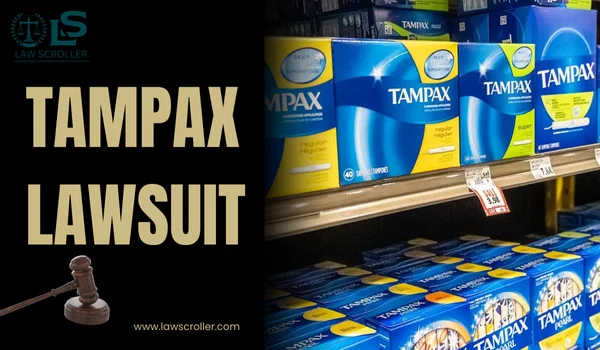If you—or someone you know—uses Tampax tampons, this lawsuit might be important. It centers on concerns that these everyday products could include unsafe levels of heavy metals, and whether women were unknowingly exposed to those risks.
Background: What’s Going On with Tampax?
In July 2024, a woman named Allison Barton filed a class action complaint against Procter & Gamble (P&G). She alleges that certain Tampax Pearl and Radiant tampon products contain toxic levels of lead, yet are marketed as safe and pure—without any warning labels.

P&G tried to dismiss the case, arguing the evidence wasn’t strong enough. But in August 2025, a federal judge in California denied most of P&G’s motion, allowing the lawsuit to proceed under claims of fraud, false advertising, and violating state consumer protection laws.
This puts the case into the discovery phase, where each side gathers evidence before potential settlement talks or trial.
Who’s Affected: Could This Be You?
You may be impacted if you:
- Purchased or used Tampax Pearl or Radiant tampons in recent years.
- Were not informed that these products might contain lead.
- Feel you made a buying decision based on safety-related marketing or assumed purity.
If that sounds like you, it’s worth keeping an eye on the case—even if you’re outside California—since class action rulings can influence wider settlements or raise awareness.
Timeline of Key Events
| Date | Event |
| July 2024 | Lawsuit filed by Allison Barton against P&G over lead in tampons. |
| Feb 13, 2025 | Judge dismissed some claims without prejudice, allowing amendment. |
| Late Aug 2025 | Judge allowed most allegations to move forward—lawsuit proceeds. |
| 2025 onwards | The case enters discovery and pre-trial stages. |
What’s at Stake: Why You Should Care
- Health concerns: Lead is a well-known toxin. Even low exposures can affect blood pressure, kidneys, reproductive health, and more — and no level of lead is considered completely safe.
- Consumer trust: Brands like Tampax often highlight purity and safety. If those claims are misleading, women may have paid premiums for products not as safe as promised.
- Legal accountability: A successful class action could result in refunds, new labeling requirements, or stricter testing protocols.
What to Watch Next
- Class certification: Will the court allow all qualified users to join the lawsuit?
- Discovery phase: Will lab tests or internal P&G documents confirm lead presence?
- Settlement negotiations or trial: Will P&G agree to compensation or stronger disclosures?
- Potential ripple effects: Could this push other tampon or hygiene product makers to be more transparent?
FAQs
Am I eligible to join this case?
If you used Tampax Pearl or Radiant tampons recently and weren’t told about lead risks, you may qualify. Keep an eye on case notices or reach out to consumer-rights attorneys.
Do I need a lawyer?
For class action cases, you often don’t need your own lawyer if the court has appointed class counsel. But it’s good to stay informed—and contact a legal expert if you’re unsure.
What could I get from this lawsuit?
Depending on the outcome, eligible people might receive refunds, monetary damages, or see changes in how the products are labeled or marketed.
When will it all be decided?
There’s no exact timeline yet. Cases like this often take months or years as legal steps—including discovery and hearings—play out.
Is using Tampax unsafe right now?
No new guidance or recall has been issued yet. However, if you’re concerned, consider discussing alternatives with your doctor or choosing tampons with clear ingredient transparency.
In a Nutshell
This is more than just a legal case—it’s about the safety of products many use every day. If you’ve ever bought Tampax expecting purity and got no warning about potential risks, this is for you. The lawsuit could shape future safety standards and consumer transparency.

 Oliver Johnson is LawScroller’s Senior Legal Correspondent specializing in civil litigation, class actions, and consumer lawsuit coverage. He breaks down complex settlements and court decisions into clear, practical guidance for readers.
Oliver Johnson is LawScroller’s Senior Legal Correspondent specializing in civil litigation, class actions, and consumer lawsuit coverage. He breaks down complex settlements and court decisions into clear, practical guidance for readers.